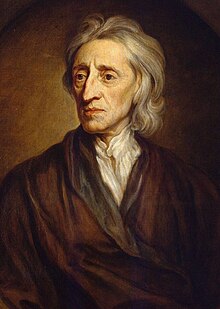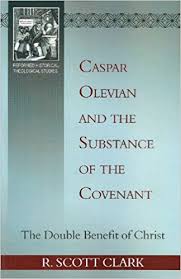Or, a return from relativism.
I have several goals in this paper. I utilize Dallas Willard’s metaphysical realism to rebut post-Kantian idealism. I also challenge James K. A. Smith’s quasi-Derridean view of interpretation.
In “How Concepts Relate the Mind to its Objects: The God’s Eye View Vindicated,” Dallas Willard defends a robust realism in the face of various post-Kantian proposals. While criticisms of Kant are common and always welcome, this paper takes a different turn. It is a response to the various “creational hermeneutics” by men like James K. A. Smith who appear to posit an endless deferral of meaning. To be fair, Smith doesn’t advocate a strict Derridean view. He assumes meaning is possible. Rather, he advocates that every hermeneutical event is always (already?) situated by our finitude. We never approach the realm of “pure interpretation.”
Further, Smith isn’t a Kantian. He isn’t saying (as far as I am aware) that our minds create reality. In this case, many of Willard’s remarks won’t directly apply to him. There are some parallels, though. Both Kant and Smith function as though there is a “wall” between our minds and reality.
On one level that seems true enough. I don’t even know what a pure interpretation unsullied by presuppositions would look like. I think there is something more, though. It’s not enough that Smith wants to avoid a Derridean relativism or something like an endless deferral of meaning. Well and good. I fear, though, that his epistemology is underdeveloped and if pursued consistently, will in fact lead to relativism.
In a new chapter to Fall of Interpretation Smith responds to criticisms of Derrida. He says Derrida does affirm that communication takes place. However, it only takes place within “communal discernment” (Smith 215-216). Indeed, communities “fix meanings.” We will come back to this claim later.
Dallas Willard’s article provides a summary of how the mental process works. He discusses what a concept is and how the nature of a concept (which always includes intentionality, relations, etc) avoids what he calls the “Midas touch” of post-Kantianism. Followers of Kant see the concept as an activity of the mind. As Willard explains, “It [the Kantian view] always turns the ‘mediation’ of the relation between the mind and world into a form of making: the object which comes to stand before the mind is in some essential way made by a ‘grasping’ of something other” (Willard 2-3).
The Structure of the Knowing Act
While Willard’s article decisively rebuts Kantianism, it does have a small payout for the “Derridean Christian Philosophers.” If what Willard says is true on how the mind knows, then it doesn’t matter if we posit that our knowledge is “mediated” or “structured” by communal knowings.
Survey of the Material
Kant: what comes before the mind as objects are products of the action of the mind (Willard 4). Evidently, there is some amorphous sludge that is present before our mind. Our mind then categorizes it and “out comes the perceived object.”
Beginning of the Case
Willard’s main argument is that all knowing acts involve “intentionality,” which is the “about-ness” or “of-ness” of something. If I know a dog, this dog, then “there must be something about each of the terms (my thought of my dog, my dog) that my thought of my dog is “together with” or pairs up with my dog” (5).
What is a Concept?
A concept is acquired, applies to or is “of” something (extension), has intension (inherent properties), is transpersonal. If there is anything that “mediates” between our minds and the outside objects, it is concepts, not endless linguistic deferrals or “communal” interpretations.
Further, concepts are properties, not acts or events. As such, they don’t “do” anything. A concept also has a “nature.” This means it has properties, relations, and an overall place “in the scheme of things” (8). Since it is a universal, it is exemplified in time and space but itself is not in time or space.
With all of this in mind (no pun intended), we can see that intentional properties are concepts which form a bridge between thought and its object. I do not think of the intentional properties but “of what is before my mind through them” (10). The intentional properties of a concept are not identical with “the properties which things must have to fall under the concept” (11).
We can try to say it another way: there is an intentional affinity (the of-ness or about-ness of a concept) between the concept and the properties of the concept. They are related in such a way that the intensional properties “always come to mind upon the instancing of the property which is the concept, but not by being instanced in the thought along with the concept” (12). In other words, the concept is before our mind, not simply the inherent structure of the concept. The following diagram might help:
Thought of a dog (exemplifies) concept of a dog (has natural affinity with) properties making up caninity (exemplified in) Dogs (Fido, etc). (Willard 13).
The Pay off
If the above is true then the objects of thought do not take on any character. They aren’t changed in structure from an amorphous sludge to a dog. Therefore, we are not “locked inside language” (14).
How does this work with the Radical Orthodox type crowd which posits an intermediate communal meaning? At the most basic level it makes it irrelevant. Let’s take the concept of a dog. I read about a dog in a text. How does placing “the communal interpretation of the faith-community” between myself and the dog “make” the text correct?
That might be somewhat trivial. Let’s take a theological dictum. If all the RO guys are saying is that we must read in conjunction with fellow believers, then there really isn’t a problem. A more hard-line approach would be “the church’s interpretation is our interpretation.” Only Protestant converts to Roman Catholicism or Eastern Orthodoxy say anything that silly. It’s common enough, though. Let’s look at it. What mediates the church’s reading of the text and the text itself? It doesn’t work to say the church, for that is no different from their own characterization of Protestantism writ-large. Further, it’s no different from the very foundationalism they eschew.
But if the church doesn’t mediate between the church’s interpretation and a given fact of experience, then who does? We are then thrown back to the individual believer’s responsibility to interpret the world, receive data, and make judgments. These judgments aren’t infallible, but they are still warranted. He can accept many of them as basic beliefs (in the absence of overriding defeaters).





